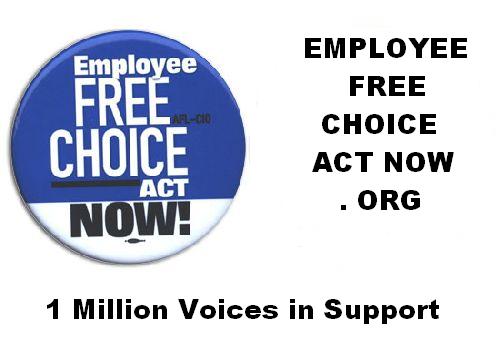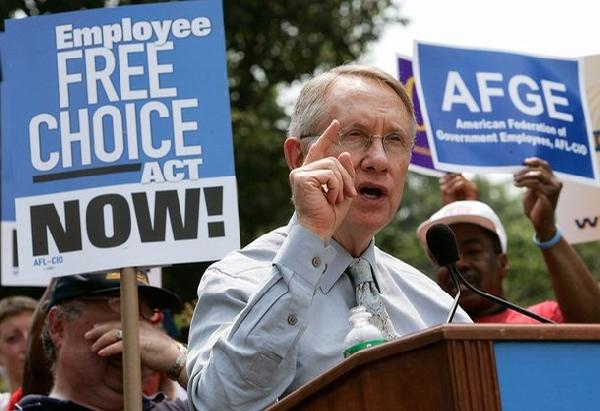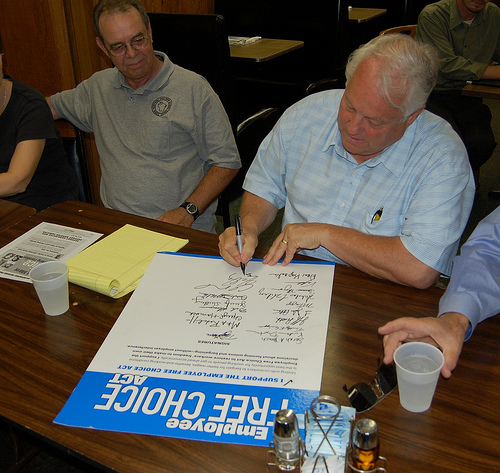| About Us | Contact Us | Calendar | Publish | RSS |
|---|
|
Features • latest news • best of news • syndication • commentary Feature Categories IMC Network:
Original Citieswww.indymedia.org africa: ambazonia canarias estrecho / madiaq kenya nigeria south africa canada: hamilton london, ontario maritimes montreal ontario ottawa quebec thunder bay vancouver victoria windsor winnipeg east asia: burma jakarta japan korea manila qc europe: abruzzo alacant andorra antwerpen armenia athens austria barcelona belarus belgium belgrade bristol brussels bulgaria calabria croatia cyprus emilia-romagna estrecho / madiaq euskal herria galiza germany grenoble hungary ireland istanbul italy la plana liege liguria lille linksunten lombardia london madrid malta marseille nantes napoli netherlands nice northern england norway oost-vlaanderen paris/Île-de-france patras piemonte poland portugal roma romania russia saint-petersburg scotland sverige switzerland thessaloniki torun toscana toulouse ukraine united kingdom valencia latin america: argentina bolivia chiapas chile chile sur cmi brasil colombia ecuador mexico peru puerto rico qollasuyu rosario santiago tijuana uruguay valparaiso venezuela venezuela oceania: adelaide aotearoa brisbane burma darwin jakarta manila melbourne perth qc sydney south asia: india mumbai united states: arizona arkansas asheville atlanta austin baltimore big muddy binghamton boston buffalo charlottesville chicago cleveland colorado columbus dc hawaii houston hudson mohawk kansas city la madison maine miami michigan milwaukee minneapolis/st. paul new hampshire new jersey new mexico new orleans north carolina north texas nyc oklahoma philadelphia pittsburgh portland richmond rochester rogue valley saint louis san diego san francisco san francisco bay area santa barbara santa cruz, ca sarasota seattle tampa bay tennessee urbana-champaign vermont western mass worcester west asia: armenia beirut israel palestine process: fbi/legal updates mailing lists process & imc docs tech volunteer projects: print radio satellite tv video regions: oceania united states topics: biotechSurviving Citieswww.indymedia.org africa: canada: quebec east asia: japan europe: athens barcelona belgium bristol brussels cyprus germany grenoble ireland istanbul lille linksunten nantes netherlands norway portugal united kingdom latin america: argentina cmi brasil rosario oceania: aotearoa united states: austin big muddy binghamton boston chicago columbus la michigan nyc portland rochester saint louis san diego san francisco bay area santa cruz, ca tennessee urbana-champaign worcester west asia: palestine process: fbi/legal updates process & imc docs projects: radio satellite tv |
printable version
- js reader version
- view hidden posts
- tags and related articles
Myth vs. Reality: The REALITY is the Employee Free Choice Act Helps American Workersby Employee Free Choice Act Now . Org Wednesday, Jan. 14, 2009 at 4:11 PMAs more and more working Americans struggle to make ends meet, the ability to form a union is key to the economic stability, health, and well-being of American families. Union workers’ median weekly earnings are 30 percent higher than those of non-union workers, union workers are 63 percent more likely to have employer-sponsored health insurance, and union workers are 77 percent more likely to have short-term disability benefits. According to a recent poll, nearly 60 percent of Americans would join a union if they could. (AFL-CIO, “The Union Difference: Union Advantage by the Numbers.”)
Loopholes in our current labor laws have left millions of workers vulnerable to aggressive anti-union campaigns, in which unscrupulous employers intimidate, harass, and even fire workers who try to form unions. Even when they succeed in forming a union -- often despite intense pressure from their employers -- nearly one-third of newly-organized workers are unable to enter into a collective bargaining agreement. The widespread failure to attain a first contract is due in large part to the lack of effective penalties for employers that fail to bargain in good faith. The Employee Free Choice Act (EFCA), sponsored by Senate and House Democrats, would level the playing field and restore workers’ freedom to form unions and collectively bargain by: 1) strengthening penalties for companies that coerce or intimidate employees; 2) establishing mediation and binding arbitration guidelines when employers and workers cannot agree on a first contract; and 3) enabling employees to form unions when a majority express their desire to do so by signing authorization cards. http://www.employeefreechoiceactnow.org Despite the need for reform, critics of EFCA continue to misinform the public about the bill and hide the serious shortcomings of current labor law. Democrats are committed to setting the record straight and passing this important legislation on behalf of American workers and their families. MYTH: EFCA will prevent the use of secret-ballot elections. REALITY: EFCA does not strip workers of their right to choose a secret-ballot election to decide whether to select -- or not to select -- a union representative. EFCA simply gives workers the additional option of selecting a union representative by majority sign-up. Under the National Labor Relations Act (NLRA), there are three ways for workers to form a union: 1) By secret-ballot: The National Labor Relations Board (NLRB) will conduct a secret-ballot election to select a bargaining representative if at least 30 percent of workers have signed a petition or authorization cards in favor of a union. If a majority of workers voting select a particular union, the NLRB will certify that union as the employees’ bargaining representative. EFCA does not change this process. 2) By voluntary card-check recognition: An employer can voluntarily decide to recognize a union representative if a majority of employees have signed authorization cards in favor of the union. EFCA does not change this process. 3) By NLRB-ordered recognition: As a last resort, the NLRB can order an employer who has engaged in unfair labor practices that make a fair election unlikely to recognize a labor union if a majority of employees have signed authorization cards in favor of the union. EFCA does not change this process. EFCA would simply add a fourth choice for workers seeking to form a union. The legislation would require the NLRB to certify a union representative if a majority -- more than half -- of workers sign authorization cards in favor of the union. The majority sign-up, or “card-check,” option would simply streamline the union selection process for workplaces that have a majority of workers who want to join a union. This is the same majority that would be voting in a secret-ballot election. Moreover, the majority sign-up process already exists, but only if the employer chooses to recognize it. EFCA would extend the right to select a union representative via the majority-sign up process to workers themselves. MYTH: Secret-ballot elections are the fairest way to select a union representative. REALITY: Secret-ballot elections in the union context can leave employees vulnerable to virtually un-checked employer intimidation and coercion. Under current law, once workers have petitioned the NLRB to hold a secret-ballot election, there is no set timetable for holding that election. Employers who are determined to prevent the formation of a union often use this period to threaten, discriminate against, de-mote, dock the pay of, and even fire pro-union employees. Studies have shown that one-quarter of private-sector union organization drives result in employee firings, and one out of every five workers who openly advocate for a union is fired. Unfortunately, current law includes weak remedies that fail to deter employers from engaging in these practices. At best, the NLRA will order the employer to stop its wrong-doing and reinstate an improperly fired employee and force the employer to pay back-pay, that is, unless the employee has found a job in the interim. EFCA would toughen the penalties against employers who engage in these unfair labor practices. In addition to ordering an employer to stop the practices, the legislation would require employers to pay employees who are fired as a result of union organizing activity, during an organizing campaign or first contract drive, treble damages (i.e. back-pay, plus liquidated damages two times that amount.). The bill would also impose civil fines of up to ,000 per violation against employers who willfully or repeatedly violate workers’ rights in forming a union. MYTH: Secret-ballot elections are the most democratic way to choose a union. REALITY: Though EFCA gives workers the choice to select a secret-ballot election or the majority sign-up process, these secret-ballot elections are nothing like our federal, state, or local candidate elections. The NLRB’s election process, for example, stifles free speech and democratic debate by restricting the ability of unions and pro-union workers to communicate with employees, while allowing employers free access to workers every day. Unlike other elections, where candidates are allowed equal access to voters during the campaign, current labor laws allow employers to bar unions from the workplace and refuse access to employee contact information until just days before the election. While strict limits apply to when and where pro-union employees can campaign to form a union, employers can require workers to attend anti-union meetings during work hours, one-on-one or in a group. Employers may also direct supervisors, who control pay and promotion, to deliver anti-union messages to workers and attach anti-union literature to paychecks. A recent survey found that employees who have gone through the NLRB election process are twice as likely to report employer coercion as those who participated in a majority sign-up process. EFCA would give workers the option to choose a different, simpler, and fairer method of union selection -- majority sign-up, which reflects a key tenet of Democracy -- majority rule. MYTH: Majority sign-up is untested and will increase intimidation and harassment of workers by labor unions. REALITY: Majority sign-up has been well-tested for over 70 years. Further, under EFCA, worker intimidation and/or coercion by any party, including unions, will remain strictly prohibited. Majority sign-up is nothing new. Workers have been forming unions through majority sign-up since 1935. The method for obtaining authorization cards is already established and used via the voluntary card check recognition and the secret-ballot election processes. Indeed, more workers form unions via card check than via secret-ballot elections. In 2004, approximately 375,000 workers joined AFL-CIO unions through majority sign-up, while approximately 73,000 workers used the NLRB election process. (AFL-CIO, “Over 70 Years of Experience with Majority Sign-up.”) While the critics of EFCA claim that, under the legislation, unions may intimidate workers, under current law, employers, employees, and unions are barred from engaging in unfair labor practices. Improperly obtained authorization cards are already invalid and cannot be counted towards majority sign-up. Moreover, in more than 70 years, there have been very few instances of fraud or misrepresentation in obtaining card signatures. Nevertheless, to ensure the integrity of the card check process, EFCA would require that the NLRB develop guidelines for selecting a bargaining representative via majority-sign up, including model language for authorization cards and procedures to verify the validity of authorization cards. MYTH: EFCA would require “public” union card signings. REALITY: EFCA would preserve current confidentiality requirements, which require the NLRB to keep authorization cards and the identity of signers confidential to protect workers from employer retaliation. MYTH: EFCA will “silence” employers. REALITY: Nothing in EFCA alters the rights of employers to speak-out against a labor union. Under the legislation, employers would still be free to campaign against a union, as long as they do not threaten or intimidate workers. EFCA only strengthens penalties for employers who engage in unfair labor practices. MYTH: EFCA’s mediation/arbitration guidelines will force unwanted contracts on employers and employees. REALITY: EFCA does not force unwanted first contracts on parties acting in good faith; the legislation, however, would give parties an incentive to come to the bargaining table. Under current law governing the first contract process, there is no effective penalty for refusing to bargain with newly certified union representatives. As a result, employers may “stonewall” the first contract and effectively block the benefits of a labor union. A recent study found that 34 percent of union election certifications do not result in a contract for workers. To get parties to the table, EFCA provides a starting schedule and a framework for negotiations. The parties have a minimum of 90 days to bargain on their own and may extend negotiations for as long as they need to. If the negotiations are unsuccessful, either party can seek help from a mediator with the Federal Mediation and Conciliation Service (FMCS), which enjoys an 86 percent success rate. If after 30 days mediation fails to result in a first contract, FMCS can refer the dispute to an arbitration panel, but the parties can still extend the period by mutual agreement or agree to return to the bargaining table. Only if the parties agree to arbitration and arbitration fails to result in a first contract will the arbitration panel impose contract terms on the issues the parties have not yet decided. Even then, the contract is only binding for two years and can be amended by written consent of the parties. For More Information on EFCA please visit our website and blog http://www.employeefreechoiceactnow.org http://efcanow.blogspot.com/
Report this post as:
Harry Reed at Labor Rally in Support of the Employee Free Choice Actby Employee Free Choice Act Now . Org Wednesday, Jan. 14, 2009 at 4:11 PM
Report this post as:
Employee Free Choice Act Now!by Employee Free Choice Act Now . Org Wednesday, Jan. 14, 2009 at 4:11 PM
Report this post as:
|





